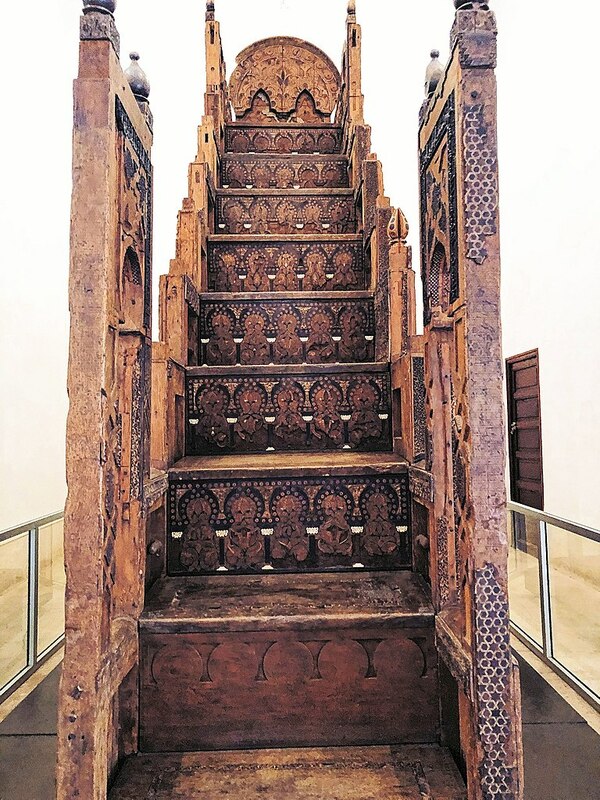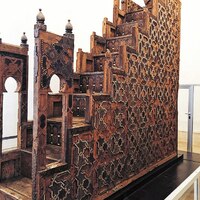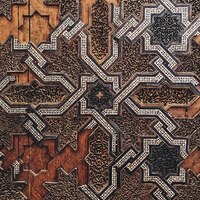Minbar from the Kutubiyya mosque
Type:
Minbars and pulpits
Date:
1137
Location or Findspot (Modern-Day Country):
Morocco
Dimensions:
3.46 × 0.9 × 3.86 m
Description:
Marrakesh was founded in 1062 as the capital of the Almoravid dynasty, which ruled over an empire that spanned northwestern Africa and al-Andalus. In 1137, the fifth and final Almoravid emir, Ali ibn Yusuf (r. 1106–43), commissioned this minbar (a pulpit for the prayer leader in a mosque) from a workshop in Córdoba. It was created for his congregational mosque in Marrakesh.
Patterns with interwoven eight-pointed stars cover the triangular sides of the minbar, with a band of Qur'anic inscriptions lining the top edges of the balustrades. The front faces of the steps include microarchitectural motifs, with arcades of horseshoe arches. The minbar was designed to be mobile and was wheeled out for use only on Fridays. When the Almohads overthrew the Almoravids and conquered Marrakesh ten years later, they destroyed Ali ibn Yusuf's mosque but preserved the minbar for their own use in the Kutubiyya mosque.
Patterns with interwoven eight-pointed stars cover the triangular sides of the minbar, with a band of Qur'anic inscriptions lining the top edges of the balustrades. The front faces of the steps include microarchitectural motifs, with arcades of horseshoe arches. The minbar was designed to be mobile and was wheeled out for use only on Fridays. When the Almohads overthrew the Almoravids and conquered Marrakesh ten years later, they destroyed Ali ibn Yusuf's mosque but preserved the minbar for their own use in the Kutubiyya mosque.
Relevant Textbook Chapter(s):
7
Repository and Online Resources:
• The minbar is now displayed at the El Badi Palace in Marrakesh.
Image Credits:
Wikimedia Commons



